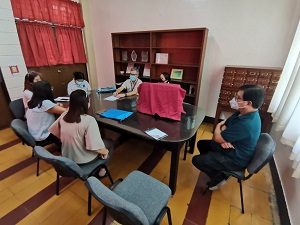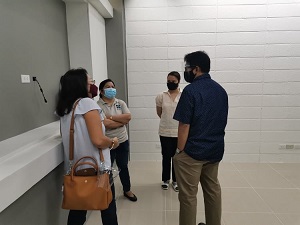 Socio-Economic Research and Data Analytics Laboratory (SERDAL) project, which aims to enhance the country’s socio-economic capacity as well as provide technical assistance to other research sectors, was recently assessed.
Socio-Economic Research and Data Analytics Laboratory (SERDAL) project, which aims to enhance the country’s socio-economic capacity as well as provide technical assistance to other research sectors, was recently assessed.
The laboratory will provide access to facilities, equipment, and licensed software and journals, as well as conduct capacity-building initiatives designed to improve researchers’ skills in implementing socio-economic research. With efforts to make data collection and analysis more efficient, SERDAL will also serve as a data repository containing cleaned and formatted datasets of previously completed research projects/programs.
The Philippine Council for Agriculture, Aquatic and Natural Resources Research and Development of the Department of Science and Technology (DOST-PCAARRD), as the funding agency conducted a field visit at the project site as part of its monitoring and evaluation protocol. The visit aimed to assess the current status of the project.
The project’s site is located at the Institute of Cooperatives and Bio-Enterprise Development (ICOPED) of the College of Economics and Management, University of the Philippines Los Baños (CEM-UPLB).
 Representatives from DOST-PCAARRD’s Socio-Economics Research Division and Institution Development Division participated in the on-site visit to evaluate the development of SERDAL, discuss the project’s remaining activities, and plan the necessary courses of action needed to ensure the continuity of project implementation upon resumption in March this year. SERDAL project operations were temporarily suspended in March 2020 in adherence to the guidelines of community quarantine in the region due to the Covid-19 pandemic.
Representatives from DOST-PCAARRD’s Socio-Economics Research Division and Institution Development Division participated in the on-site visit to evaluate the development of SERDAL, discuss the project’s remaining activities, and plan the necessary courses of action needed to ensure the continuity of project implementation upon resumption in March this year. SERDAL project operations were temporarily suspended in March 2020 in adherence to the guidelines of community quarantine in the region due to the Covid-19 pandemic.
The project started implementation in 2018 with an approved budget of around P9.6 million. It was initially led by Dr. Isabelita Pabuayon of CEM-UPLB until July 2019. Upon her retirement, Dr. Pabuayon passed on the SERDAL project leadership to Dr. Marilyn Elauria, also from CEM-UPLB. To date, the project has achieved considerable results in terms of training workshops and seminars conducted, and equipment procured to support the functions of the laboratory.
Currently, the project has an approved five-month extension to finish its laboratory renovation and procurement of remaining equipment. Soon the laboratory will be fully operational and able to serve both budding and expert socio-economic researchers who will avail their services.
